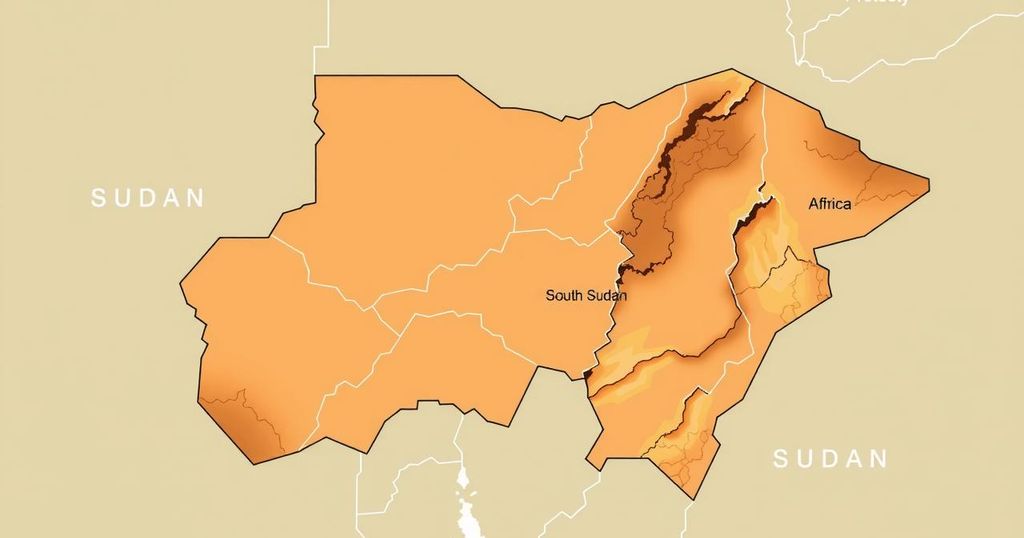Global news
AFRICA, CIVIL WAR, CONFLICT RESOLUTION, IGAD, LRA, MACHAR, MAKUEI, MICHAEL MAKUEI LUETH, MILITARY, OPPOSITION, PEACEKEEPING, REGIONAL COOPERATION, RI, RIEK MACHAR, SOUTH SUDAN, SUDAN PEOPLE ’ S LIBERATION ARMY, U. S, UGANDA, UGANDAN PEOPLE ’ S DEFENCE FORCES, UPPER NILE STATE, YAMBIO
Isaac Bennett
0 Comments
South Sudan Confirms Ugandan Military Deployment Amid Rising Security Threats
South Sudan confirmed the presence of Ugandan military forces citing a bilateral security pact. The UPDF’s involvement is aimed at addressing regional threats and supporting South Sudanese defense forces. Government spokesperson Michael Makuei addressed additional security issues including calls for the release of political detainees and warnings to militia groups, reflecting the complex internal and external challenges faced by South Sudan.
On Monday, the government of South Sudan acknowledged the deployment of Ugandan military forces, reversing its prior denial and citing a longstanding security agreement designed to confront regional threats. Information Minister Michael Makuei Lueth reported that the Ugandan People’s Defence Forces (UPDF) are operating in South Sudan under a military arrangement originally established to combat the Lord’s Resistance Army (LRA).
This confirmation follows a series of denials from the South Sudanese government after the Ugandan military revealed its presence in Juba to safeguard President Salva Kiir amid escalating insecurity. The situation evokes memories of Uganda’s previous military intervention during the 2013-2016 conflict, which attracted international condemnation.
Minister Makuei asserted that the arrangement is not unusual, drawing parallels to past U.S. military operations in South Sudan aimed at eradicating the LRA. He stated, “The UPDF here are support units assisting their brothers and sisters in the South Sudan People’s Defence Forces (SSPDF).” The minister supported the deployment by emphasizing mutual defense provisions for the people and government under the agreement, dismissing criticism as unjustified.
Additionally, Makuei addressed the recent resolution from the Intergovernmental Authority on Development (IGAD), which called for the release of detained allies of First Vice President Dr. Riek Machar if no evidence is available against them. He indicated that officials stripped of immunity would be subject to investigations for alleged attempts to overthrow the government, emphasizing, “If innocent, they will be released. If guilty, they will face the law.”
Moreover, Makuei cautioned the White Army—a militia associated with Machar’s Sudan People’s Liberation Army-in-Opposition (SPLA-IO)—to vacate Nasir County or confront military repercussions. He attributed ongoing instability in Upper Nile State to this group, which has historical ties to Nuer civilian fighters. He stated, “Any civilian in a military zone refusing to leave will be treated accordingly” and confirmed military airstrikes in the region while denying targeting civilians.
As South Sudan navigates these challenges, it remains precariously situated under a fragile peace agreement established in 2018 between President Salva Kiir and First Vice President Riek Machar.
In summary, the South Sudanese government’s admission of Ugandan military presence highlights ongoing security concerns amidst a tumultuous political landscape. The acknowledgment reaffirms a military pact aimed at mutual defense against regional threats. The government is also grappling with internal dissent and instability, as evidenced by the calls for the release of political detainees and warnings to militia groups. The fragile peace established in 2018 remains at risk amid these developments, necessitating vigilant international observation.
Original Source: www.radiotamazuj.org




Post Comment